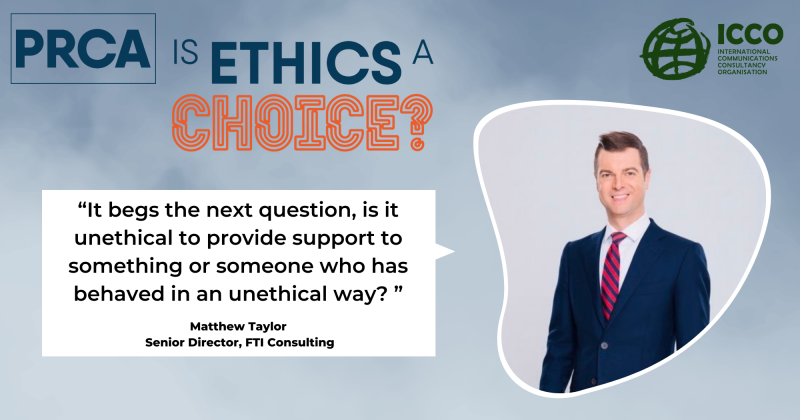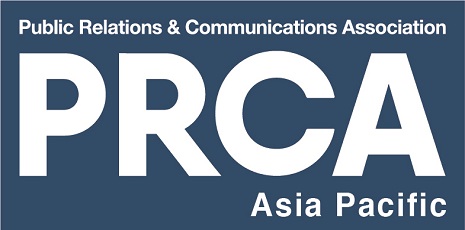
Author: Matthew Taylor
FTI Consulting | Senior Director
Let’s face it, when it comes to ethics, the public relations and media sectors often cop a bad rap, but why? Is this because a few bad eggs have spoiled it for everyone? Or does it say more about the overarching impression of the industry we work in and, if so, how did we get here?
The Oxford English Dictionary’s definition of ethics says they are the moral principles that govern a person’s behavior or the conducting of an activity So when the question is posed as to whether or not ethics is a choice, you would have to say that you do always have a choice.
Is it though? Given the increased scrutiny on corporate behavior driven by the growing focus on ESG issues, increasing media saturation and scrutiny as part of the 24-hour news cycle, and the rise of the cancel and “gotcha” cultures, as public relations professionals there is an argument that ethics is not a choice. Instead, I would view ethics an inherent requirement for those involved in the public relations and media sectors, linked closely to the reputations of those who manage and promote reputations. If those who craft the messaging cannot, in turn, live by the standards by which they are judging society, then what hope do we have?
At the surface this may appear to be a very altruistic view of how, as public relations professionals, we operate. There are always two sides to any dispute and inevitably, from time to time, we are called on to represent a client who may have lacked their own moral compass, but that does not mean that we need to behave in the same way.
I wonder if the reason the industry cops such a bad rap is because the distinction is not always clear enough between those who act in a way unbecoming or engage in actions perceived as unethical versus those who provide counsel. It begs the next question, is it unethical to provide support to something or someone who has behaved in an unethical way? I would argue it is not, so long as unethical behavior is not condoned or endorsed.
I would argue that public relations professionals having a good ethical compass could help in transcending the common banalities thrown around about our professions. Collectively, if we are seen to have a moral compass, over time social opinion towards the public relations and media sectors may indeed change. Throughout my journalism career much was made of offering the right of reply when it came to a story. Not running with gossip or hearsay simply because it may have come from a reliable source. Using multiple sources to confirm details and working within the mantra of fair and balanced reportage.
When it comes to the public relations sphere, I would argue we can do the same. So, I would say that ethics is always a choice, but that being on the right side of the ethics debate is the prudent and only choice. To me, being ethical is the right, and therefore only choice and much can be achieved reputationally if one is to clearly sit on that side of the ledger.
The views expressed herein are those of the author(s) and not necessarily the views of FTI Consulting, Inc., its management, its subsidiaries, its affiliates, or its other professionals.
FTI Consulting, Inc., including its subsidiaries and affiliates, is a consulting firm and is not a certified public accounting firm or a law firm. FTI Consulting is an independent global business advisory firm dedicated to helping organisations manage change, mitigate risk and resolve disputes: financial, legal, operational, political & regulatory, reputational and transactional. FTI Consulting professionals, located in all major business centres throughout the world, work closely with clients to anticipate, illuminate and overcome complex business challenges and opportunities. ©2022 FTI Consulting, Inc. All rights reserved. www.fticonsulting.com

